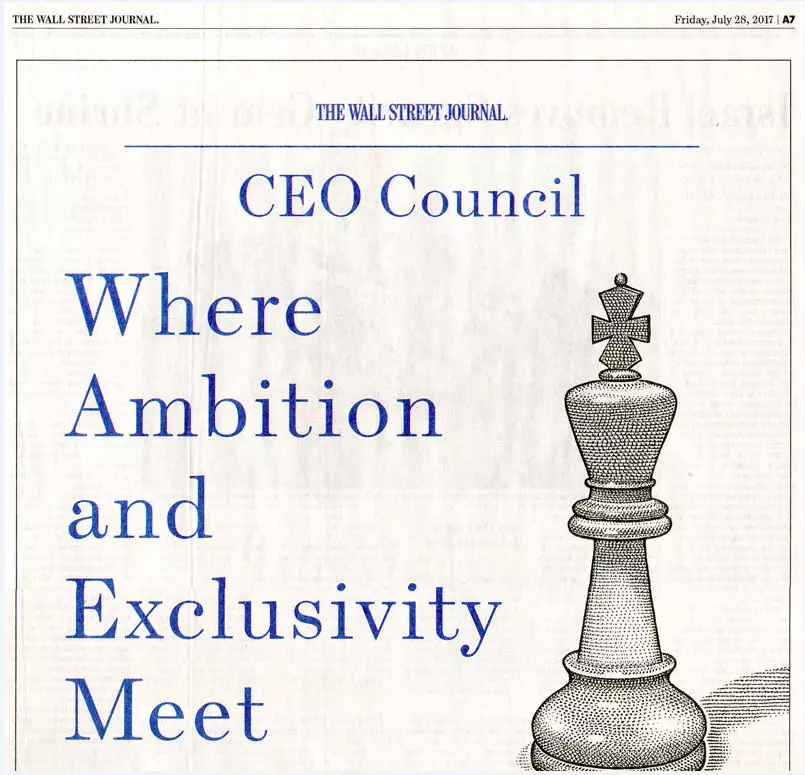Emotional Triggers In Advertising, Wall Street Journal Case Study
- Three Key Emotional Triggers
- Three Key Emotional Triggers (Pt 2): Three Manifestations
- Three Key Emotional Triggers (Pt 3): Long-term Security
- Three Key Emotional Triggers (Pt 4): Novelty of Experience
- Three Key Emotional Triggers (Pt 5): Emotional Recognition
- Emotional Triggers In Advertising, Wall Street Journal Case Study
People often saw the series on emotional triggers as personality types. They aren’t. As a result, showing emotional triggers in advertising helps to show the difference. A Wall Street Journal (WSJ) ad does a great job here.
First, consider this analogy. Physically, we can’t live without air, water and food. Personality type does not matter. People need these.
It’s the same emotionally. People suffer if they don’t feed themselves on this level too. Three main feeds exist: long-term security, novelty of experience and emotional recognition. Shorthand, they’re security, growth and uniqueness.
Personality type does not matter. All people need these. Only the mix and intensity of each will vary by personality type. If people don’t get these, they will be on their way to a form of emotionally death. It shows up in many ways, physically and mentally included.

This Wall Street Journal ad exhibits all three emotional triggers in advertising, “ambition” (growth) conveys novelty of experience, “exclusivity” (uniqueness) emotional recognition and the king piece (security) long-term security.
Emotional Triggers In Advertising
Thus, emotional triggers in advertising work like food triggers do. They hit people’s basic needs. Take the ad at right. The WSJ runs it for their CEO Council. The ad expresses the meeting’s and group’s brand.
In it, “ambition” pulls the growth emotional trigger. “Exclusivity” the uniqueness one. The king piece from chess security.
The king represents power. Power means security. It means strength. People feel secure, in control. Power, security and strength pull this the security trigger.
Ambition conveys motion. Growth is motion, new experiences. An ambitious person wants more power, more money or just more period. Growth, newness, youth and fresh pull the growth trigger. Ads commonly pull it with “new and improved.”
Exclusivity says special. Special means unique too. It can show up as status. Thus, luxury items often pull the uniqueness trigger. Being a winner or a talent does too. Rewards, treats and recognition “because you’re worth it” are other ways to pull this trigger.
“Because You’re Worth It” Ad
Wall Street Journal Case Study
Emotional triggers in advertising work on all. It does not matter how smart, rich, talented or powerful one is. This WSJ ad proves this. It targets powerful, ambitious and high-status people.
As with anyone else, these folks need air, water and food to live. Likewise, they need emotional feeding too. The ad does that. Their personality types don’t matter. It might only change the form these emotional triggers take.
Therefore, the everyday practical point is this. Anyone, not just the WSJ, can pull these triggers. Sycophants do so with the ad’s target group for instance. That’s how “yes people” come to surround leaders. They isolate them. Leaders suffer. We all suffer then.


